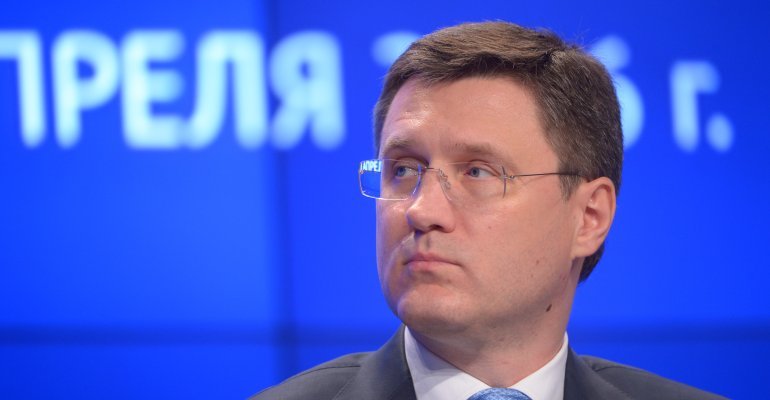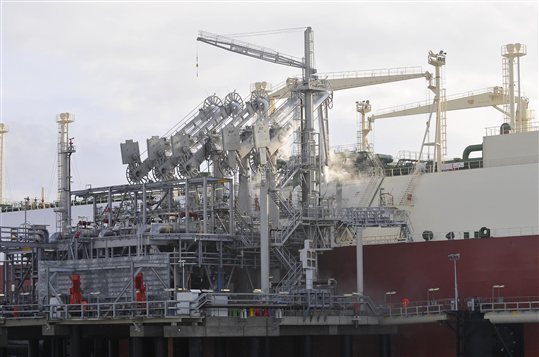
Russia is likely to support extending a multinational deal to cut oil output as higher prices boost revenue in the run-up to next year’s presidential election, a Bloomberg survey shows.
“I expect Russia to be on board,” said Helima Croft, chief commodities strategist at RBC Capital Markets LLC in New York. The Kremlin won’t want crude prices to fall, “especially with elections in 2018,” she said. Of 12 analysts surveyed, a further nine agreed.
Russian Energy Minister Alexander Novak will meet counterparts from the Organization of Petroleum Exporting Countries in May to decide whether to extend the curbs that began in January. Crude prices have rebounded almost 20 percent since OPEC’s November decision to rein in supply, driving Russia’s revenue from energy taxes to a two-year high last quarter.
“The agreement on the whole has been working,” said Ildar Davletshin, an analyst at Renaissance Capital Ltd. in London. “Russia’s reserves are picking up faster, increasing its economic resilience.”
Russia, which relies on oil and gas for about half its budget revenue, will go to the polls next March, and incumbent Vladimir Putin is widely expected to seek another term. Putin said last month the output accord with OPEC is stabilizing the market, though Novak has insisted it’s too early to decide whether to prolong it. His press office said Wednesday it had nothing new to add.
Russia’s oil producers will see no difficulty in keeping some of their aging wells offline until the end of the year, according to Moscow-based analysts at Otkritie Capital, Aton LLC and Sberbank CIB. Renewing the deal may help push prices up to $60 a barrel, Otkritie’s Artem Konchin said. Benchmark Brent crude is currently trading near $53.
A five-nation committee — including Russia — that assesses compliance with the cuts will meet Friday, and Novak plans to hold talks with Russian oil companies next week before meeting OPEC ministers in Vienna on May 25.
There are risks to extending the cuts. As OPEC and its allies have curtailed supply, U.S. shale drillers have seized the chance to ramp up output. That trend is the main threat to renewing the deal, Russian oil giant Rosneft PJSC said last month.
Russia has also not yet met its commitment to OPEC. It’s pumping about 1.5 million tons a day, Deputy Energy Minister Kirill Molodtsov said this week. That’s equal to about 11 million barrels, still exceeding the 10.947 million-barrel target it’s pledged to reach by the end of April.
“One-hundred percent compliance by Russia still remains very uncertain,” said Hans van Cleef, an energy economist at ABN Amro Bank NV in Amsterdam, who nonetheless sees the deal being extended.
Record High
Russian oil output rose to a post-Soviet record last October as a weaker ruble reduced drilling costs and tax rates adjusted to lower crude prices. Should OPEC decide to prolong production cuts for a further six months, Russia’s continued participation in the agreement will be crucial, said Neil Beveridge, a Hong Kong-based analyst at Sanford C. Bernstein & Co.
Deputy Prime Minister Arkady Dvorkovich said April 7 that the deal hadn’t delivered the price boost Russia was expecting, though conceded that prices were now “at a more advantageous level” and “on the whole the decision taken was the right one.”
Brent crude averaged about $54.60 a barrel in the first quarter, up more than 50 percent from a year earlier. Prices added 22 cents to $53.15 at 1:27 p.m. in Hong Kong on Thursday, paring Wednesday’s 3.6 percent decline.
Russia has secured a “strong price rise after a modest production cut,” said Giovanni Staunovo, a Zurich-based analyst at UBS Group AG. “Russia has been a big financial winner from the output reduction agreed last year.”
Recommended for you
